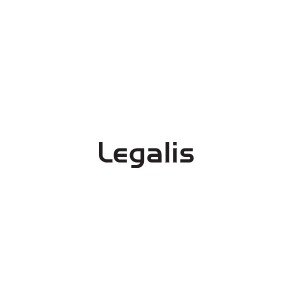Best Trusts Lawyers in Oslo
Share your needs with us, get contacted by law firms.
Free. Takes 2 min.
List of the best lawyers in Oslo, Norway
About Trusts Law in Oslo, Norway
Trusts law in Oslo, Norway, differs significantly from other jurisdictions like the United States or the United Kingdom. In Norway, the concept of a 'trust' as understood in common law is not fully recognized. Norwegian law focuses more on foundations (stiftelser) and other similar legal constructs, which are designed to manage and allocate assets for specific purposes. Understanding how trusts and similar instruments function within the framework of Norwegian law is essential for anyone dealing with estate planning, asset management, or charitable activities.
Why You May Need a Lawyer
There are several scenarios where one might require legal assistance in the realm of trusts or similar structures in Oslo, Norway:
- Estate Planning: Ensuring that assets are distributed according to your wishes after death.
- Asset Protection: Shielding assets from creditors or legal claims through legally sound mechanisms.
- Charitable Foundations: Setting up a stiftelse (foundation) for philanthropic purposes.
- Business Succession: Planning the transfer of business ownership to heirs or new management.
- Dispute Resolution: Addressing conflicts involving the management or distribution of assets.
Local Laws Overview
Key aspects of local laws in Oslo that are pertinent to trusts and similar arrangements include:
- Foundations (Stiftelser): The Norwegian Foundations Act governs the creation and administration of foundations, which can serve purposes similar to trusts.
- Inheritance Law: The Norwegian Inheritance Act outlines the default rules for asset distribution upon death, including obligatory shares for close relatives.
- Taxation: Both inheritance tax and capital gains tax implications must be considered when dealing with asset transfers and foundations.
- Legal Guardianship: For minors or individuals unable to manage their own affairs, Norwegian law provides mechanisms for appointed guardians.
Frequently Asked Questions
What is the equivalent of a trust in Norwegian law?
In Norwegian law, the closest equivalent to a trust is a foundation (stiftelse), which is a legal entity designated to manage assets for specified purposes.
Can I set up a trust in Norway?
While traditional trusts as understood in common law are not recognized, you can set up a foundation or similar legal structure to achieve similar objectives.
What are the requirements to establish a foundation?
Establishing a foundation in Norway typically requires a minimum capital contribution, a clearly defined purpose, and compliance with the Norwegian Foundations Act.
How are assets distributed if there is no will?
If there is no will, assets are distributed according to the Norwegian Inheritance Act, which provides obligatory shares for spouses, children, and other close relatives.
What are the tax implications of setting up a foundation?
Foundations may be subject to various taxes, including income tax and capital gains tax. It's important to consult a tax advisor to understand specific obligations.
Can a foreign trust be recognized in Norway?
Foreign trusts are generally not recognized in Norway, but their effects may be considered under international private law principles.
Who can be a beneficiary of a foundation?
A foundation can have a wide range of beneficiaries, including individuals, groups, or purposes specified in its charter.
What are the reporting requirements for a foundation?
Foundations in Norway are required to submit annual reports to the Norwegian Foundation Authority, detailing their activities and financial status.
Can I amend the terms of a foundation once it is established?
Amending the terms of a foundation can be challenging and generally requires approval from the Norwegian Foundation Authority and compliance with its charter.
Do I need a lawyer to set up a foundation?
While not legally required, consulting a lawyer is highly recommended to ensure all legal requirements are met and to navigate the complexities of the Norwegian legal system.
Additional Resources
Here are some helpful resources and organizations related to trusts and foundations in Norway:
- The Norwegian Foundation Authority (Stiftelsestilsynet)
- The Norwegian Bar Association (Advokatforeningen)
- The Norwegian Tax Administration (Skatteetaten)
- E24, a Norwegian business news outlet, for updates on legal and financial news
Next Steps
If you need legal assistance with trusts or similar structures in Oslo, Norway, consider the following steps:
- Consult a Lawyer: Seek advice from a legal professional who specializes in trusts, estates, and foundations.
- Prepare Documentation: Gather all relevant documents and clearly define your objectives.
- Understand Costs: Be aware of consultation fees and potential legal costs involved.
- Follow Guidance: Adhere to the advice provided by your lawyer to ensure compliance with Norwegian law.
Lawzana helps you find the best lawyers and law firms in Oslo through a curated and pre-screened list of qualified legal professionals. Our platform offers rankings and detailed profiles of attorneys and law firms, allowing you to compare based on practice areas, including Trusts, experience, and client feedback.
Each profile includes a description of the firm's areas of practice, client reviews, team members and partners, year of establishment, spoken languages, office locations, contact information, social media presence, and any published articles or resources. Most firms on our platform speak English and are experienced in both local and international legal matters.
Get a quote from top-rated law firms in Oslo, Norway — quickly, securely, and without unnecessary hassle.
Disclaimer:
The information provided on this page is for general informational purposes only and does not constitute legal advice. While we strive to ensure the accuracy and relevance of the content, legal information may change over time, and interpretations of the law can vary. You should always consult with a qualified legal professional for advice specific to your situation.
We disclaim all liability for actions taken or not taken based on the content of this page. If you believe any information is incorrect or outdated, please contact us, and we will review and update it where appropriate.













